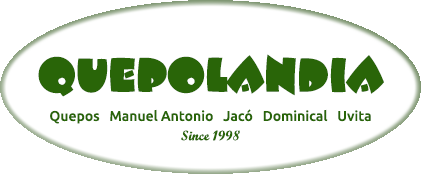Haber = To have #2
By Os
HABER is an auxiliary-helping verb that we use in español when we talk about things and/or actions that we have done in the past.
Do use HABER when saying something like:
I have spoken / I have eaten / I have lived / I have been / I have had / I have gone / I have driven / I have gotten / I have done something / I have made something / etc, etc, etc…
Remember that in español the “H – h” is silent.
HabER = TO have #2
| I he | you, s/he ha |
| we hemos | y’all, they han |
Let’s play with the verb HABER + spoken.
First in English and then in Spanish.
I have spoken. Yo he hablado.
You have spoken. Usted ha hablado.
S/he has spoken. Ella/Él ha hablado.
We have spoken. Nosotros hemos hablado.
Y’all have spoken. Ustedes han hablado.
They have spoken. Ell@s han hablado.
Now let’s do the same with HABER + eaten.
I have eaten. Yo he comido.
You have eaten. Usted ha comido.
S/he has eaten. Ella/Él ha comido.
We have eaten. Nosotros hemos comido.
Y’all have eaten. Ustedes han comido.
They have eaten. Ell@s han comido.
Now let’s do the same with HABER + lived.
I have lived. Yo he vivido.
You have lived. Usted ha vivido.
S/he has lived. Ella/Él ha vivido.
We have lived. Nosotros hemos vivido.
Y’all have lived. Ustedes han vivido.
They have lived. Ell@s han vivido.
Now let’s do the same with HABER + been.
I have been. Yo he sido/estado.
You have been. Usted ha sido/estado.
S/he has been. Ella/Él ha sido/estado.
We have been. Nosotros hemos sido/estado.
Y’all have been. Ustedes han sido/estado.
They have been. Ell@s han sido/estado.
Now let’s do the same with HABER + gone.
I have gone. Yo he ido.
You have gone. Usted ha ido.
S/he has gone. Ella/Él ha ido.
We have gone. Nosotros hemos ido.
Y’all have gone. Ustedes han ido.
They have gone. Ell@s han ido.
Now fill the box.
HabER = TO _______ # __2
| I he | you, s/he ha |
| we hemos | y’all, they han |
Well done guys! Now let’s learn how to say: spoken, eaten, lived, been, had, done, made, gone, written, etc., etc., etc. in Spanish. But check this out first:
HABER is an auxiliary-helping verb that we use in español when we talk about things and/or actions that we have done in the past.
“…actions that we have done in the past…”;
“…that we have done…”;
“…have done…”;
“…done…”
DONE is a past participle. ¿A what? A past participle. A past participle (p.p.) is a word that indicates past or completed action or time. It is often called the “ed” form as it is formed by adding d or ed, to the base form of regular verbs, however it is also formed in various other ways for irregular verbs, such as been, gone, gotten, drunk, etc, etc, etc…
English Gramar stinks, doesn’t it?
For today we are gonna define past participles as the words that follow “have” when we say something like:
I have spoken / I have eaten / I have lived / I have been / I have had / I have gone / I have driven / I have gotten / I have done something / I have made something / etc, etc, etc…
And we are not going to call them past participles anymore. We will call them: “p.p.’s” = “pee pees”.
| Engilsh | p.p. | Español | p.p. |
| To speak | spoken | HablAR | hablADO |
| To love | loved | AmAR | amADO |
| To walk | walked | CaminAR | caminADO |
| To cook | cooked | CocinAR | cocinADO |
| To be # 2 | been | EstAR | estADO |
¡YES! The p.p. of a Spanish –AR verb ends in “ADO”.
| Engilsh | p.p. | Español | p.p. |
| To eat | eaten | ComER | comIDO |
| To drink | drunk | BebER | bebIDO |
| To have | had | TenER | tenIDO |
| To be # 1 | been | SER | sIDO |
¡YES! The p.p. of a Spanish –ER verb ends in “IDO”.
| Engilsh | p.p. | Español | p.p. |
| To get | gotten | ConseguIR | conseguIDO |
| To live | lived | VivIR | vivIDO |
| To go | gone | IR | IDO |
¡ALSO! The p.p. of a Spanish –IR verb ends in “IDO”.
Remember that when we want to say something like:
I have spoken / I have eaten / I have lived / I have been / I have had / I have gone / I have driven / I have gotten / I have done something / I have made something / etc, etc, etc…
Because we want to indicate something that has been done in the past like:
I have spoken today / I have eaten this morning / I have lived for awhile / I have been since 2012 / I have had all my life / I have gone this year / I have driven the whole afternoon / I have gotten all this week / I have done something tonight / I have made something this afternoon / etc, etc, etc…
We do have to use the verb HABER + p.p.
Thus, for now on, we’ll play with the verb HABER like this:
HabER = TO have #2
| I he + p.p. | you, s/he ha + p.p. |
| we hemos + p.p. | y’all, they han + p.p. |
That’s enough for now amig@s…
Os has been teaching Spanish over 2,000 days to
ALL levels and ages…¡Let him help you learn!
www.OsCostaRica.com 88-222-936

